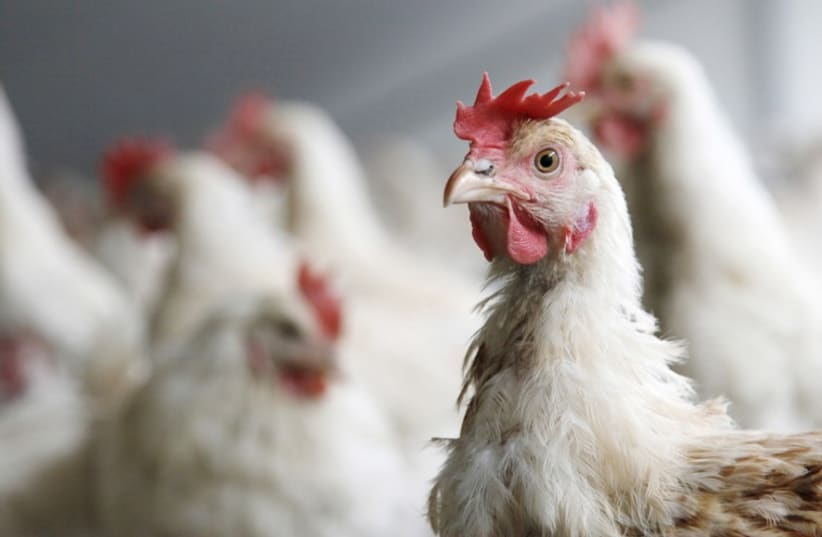The company, eggXyt, signed a license agreement to use GEiGS (Genome Editing induced Gene Silencing) technology from Tropic Biosciences to develop the flu-resistant birds. The technology is based on the CRISPR technology which earned a Nobel Prize this year.
Outbreaks of avian influenza affect human health as well and require the destruction of millions of chickens around the world every year.
"The avian flu epidemic is one of the most difficult problems in the poultry industry, with enormous economic and environmental damages," said Prof. Daniel Offen, co-founder of the company. “For example, in a US outbreak in 2015, 50 million birds costing $3.2 billion were destroyed. These days, many chicken coops in Europe have contracted bird flu. In the event of an outbreak, all the birds are destroyed in all the chicken coops within a radius of 2 km - whether the chickens are sick or not. This is due to the constant fear that the disease will also infect humans. As is well known, the coronavirus has also been transmitted from animals to humans, so the risk to public health is real. Especially in this time of global epidemic, there is no need to say too much about finding solutions to these issues."
The CRISPR method, developed by Emmanuelle Charpentier and Jennifer Doudna, uses an enzyme called Cas9, which scans DNA segments, attaches to the desired segment in a very precise way and allows precise cutting or modification of the DNA.
Dr. Malkiel Cohen, research director of eggXYt, explained that the resistant birds are developed by editing DNA fragments in chickens to attack the virus. The challenge is to find a solution that will provide resistance to a wide range of strains of the virus, as the virus forms mutations just like influenza in humans. Together with Tropic Biosciences, eggXYt is working to introduce minimal changes in the chickens' DNA to target gene segments that will work against viruses without harming the chicken cells.
EggXYt was founded in 2015 by Offen and Yehuda Elram. A year afterwards, it was selected as one of the 100 start-up companies that could change the world (Disruptive Innovations). The company uses technology developed by Offen for identifying the sex of the chicken inside the egg immediately after laying.
"Through the latest technologies, original ideas and experience we have accumulated, we hope to develop flu-resistant species and thus contribute to the well-being of animals and the health of us all," said Elram.
The technology uses genetic editing with commercial varieties of laying hens eggs containing embryos of male chickens glow in fluorescent light that can be identified on the day of laying. The females remain of the same genetics without a marker. This gets rid of the need for expensive incubation, sorting, extermination of live chickens and air pollution. This will prevent unnecessary killing and allow four billion eggs a year that don't develop into chicks to be sold to various industries.
